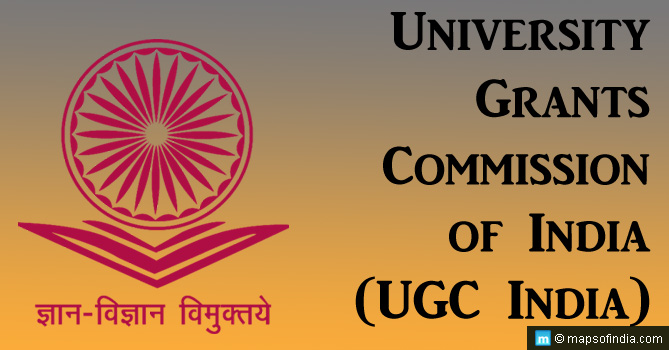Undoubtedly, India has been the centre of learning, not only for inhabitants but also for the populace from other republics. The Higher Education System has always been adopted widely in India since ancient times to the modern world. It saw a rise in the post-independence period. Ancient India had the world’s oldest universities, such as Nalanda, Takshashila, Vikramashila, etc.
India has flourished so tremendously as we can take the pleasure of learning in the world’s third-largest education system. The supervision of the system comes under the UGC (University Grants Commission), which is the primary governing body of tertiary education. The UGC is the statutory body responsible for coordinating, determining and regulating standards of higher education. It authorises the recognition to universities across India and disburses funds to those recognised universities and colleges. It has its Head Office in New Delhi’s Bahadur Shah Zafar Marg.
Let’s take a look at the UGC’s timeline:
- In 1944, with the Sargent Report, the government made the first endeavour to have an education system. It was the report of the Central Advisory Board of Education on Post-War Educational Development in India.
- The University Grants Committee was constituted in 1945 through various top suggestions that enforced the responsibility to monitor the three renowned Central Universities of Aligarh, Banaras and Delhi.
- The committee got the responsibility to supervise all the universities of that era in 1947.
- The University Education Commission was formed in 1948, whose chairman was Dr Sarvepalli Radhakrishnan. The commission recommended reforming the current University Grants Committee into University Grants Commission India like the UK.
- Maulana Abul Kalam Azad (former Minister of Education) launched the University Grants Commission on December 28, 1953
- In November 1956, UGC (University Grants Commission) was officially established as a statutory body of the Government of India via ‘University Grants Commission Act, 1956’ of the Parliament. The purpose was to monitor the coordination, determination and maintenance of standards of university education in our country.
- To regulate the region-wise education system in India, UGC set up six centres at Pune, Hyderabad, Kolkata, Bhopal, Guwahati and Bangalore in 1994 and 1995.
Functions of the UGC
- It fosters and coordinates university education across the country
- It makes and strengthens rules on minimum standards of education.
- It maintains standards for examinations such as ICAR NET, UGC NET & CSIR UGC NET
- It evaluates growth in the areas of college and university education.
- It enables grants to universities and colleges.
- It remains in the connection between the Union and State Governments and institutions of higher education.
- It recommends necessary methods to Central and State governments to make positive changes in university Education.
UGC Mandate
The UGC is the only grant-giving agency in the country that conforms to its two responsibilities, namely offering funds and coordination, determination, and regulation of standards in higher education institutions.
The UGC’s mandate consists of fostering and coordinating university education, determining and regulating standards of teaching, examination and research in universities. It includes designing regulations on minimum standards of education and supervising developments in the areas of collegiate and university education. It further consists of serving as an essential connection between the Union and State governments and institutions of higher learning and urges the Central and State governments on the measures necessary for the enhancement of university education.
UGC Scholarships
With the assistance of UGC scholarships, the students who are not financially strong but are certainly capable of making remarkable changes in the higher education system can continue their education without any financial obstruction. Numerous UGC scholarships and fellowships have been in consideration by the commission, which offers excellent opportunities to the students who are continuously contributing to the growth of our educational system.
Moreover, several brilliant researchers and Lecturers are felicitated with UGC Awards and Honours by the commission. The awards are UGC Hari Om Ashram Trust Awards, UGC Swami Pranavananda Saraswati National Awards and UGC National Veda Vyas Sanskrit Awards.




